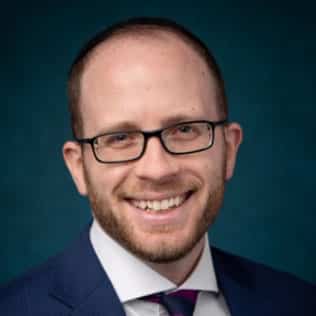 tomertu/Getty Images
tomertu/Getty Images As anyone who has spent weeks cleaning for Passover can attest, the Shabbat before the holiday is often, as the kids would say, mid. Paranoid about any hametz landing under couches, stressed about the lack of Seder prep, already missing the challah that will soon be verboten, and hearing the rabbi’s hour-long sermon, families often find it hard to generate festive feelings. Yet, the Jewish tradition has long proclaimed that this Shabbat is, to paraphrase those classic Kellogg’s Frosted Flakes commercials … GREAT! For centuries, it’s been referred to as Shabbat HaGadol – the Great Sabbath.
Commentators have found the most Jewish of ways to understand the origin of this perceived greatness – by arguing about what exactly it means.
The most commonly cited explanation is that the day gets its name from the haftarah portion read from the Prophets on Saturday morning. The section, taken from the short book of Malachi, concludes with God’s proclamation “Behold I am sending you the prophet Elijah before the coming of the great and fearful day of the Lord,” a reference to the reckoning signaling the Messiah’s arrival. Problem is, the 13th century sage Rabbi Isaac of Vienna, known as the Or Zarua, documents a debate in his time over what portion is to be recited that Shabbat — indicating that Malachi was not always read, and when it was, not by all synagogues. Some preferred a passage from Isaiah.
The second most quoted explanation, made popular by the 14th century Spanish sage Yaakov ben Asher, known widely as the Tur, is that if you crunch the numbers between the Bible and the second century chronological work “Seder Olam,” it would seem that God’s commandment to the Israelites in the book of Exodus to tie a sheep to their bedposts and then, four days later, ritually slaughter them as the paschal sacrifice, was given on Shabbat. The lack of a violent reaction on the part of the Egyptians to this sacrament of freedom was so miraculous that Shabbat was deemed special.
The French medieval scholar Hizkuni swiveled from the supernatural to the national. He theorized that it was by dint of the Israelites obeying God that day – their first collective fulfillment of a divine commandment as a new nation – that the weekend earned its designation. Like a bat mitzvah girl or bar mitzvah boy now counting as a gadol, an adult, Jacob’s descendants had finally reached the age of maturity.
To Joseph di-Trani, in his book “Tzafnat Paneach” – citing his father, the 16th century Tzfat-based Rabbi Moshe di-Trani – the Shabbat was unique because it was the first that wasn’t followed by a return to the back-breaking labors at the hands of the Egyptian taskmasters. It was a Saturday that signaled the long-awaited liberation and salvation, a Shabbat that never ended.
Many other scholars, however, note that somewhat obscure calendrical correspondence can hardly be the source of the nickname. After all, the Bible never identifies the day of the week of God’s commandment. No wonder then that the 12th century prayer book known as the Machzor Vitri, produced by students of the renowned sage Rashi, is at a loss as to the customary appellation, writing: “And the Sabbath before Passover is known among the people as ‘the Great Shabbat’ and they do not know why, since it is no greater than any other Sabbath.” No Jewish text even mentions the special designation during the entirety of the first millennium C.E.
Perhaps that’s why the collection of legal material attributed to Rashi and known as the Sefer HaPardes, tongue likely firmly planted in rabbinic cheek, posits that the significantly longer than usual sermon delivered on the occasion makes the congregants feel like Shabbat afternoon is great in length — not in a good way.
Defenders of the rabbinic habit of delving deeply into the nuances of the upcoming holiday’s laws suggest, in turn, that it is out of respect for the wise words of the brilliant, great sermonizer by all who want to come and hear that the day gets its nickname. The 17th century Rabbi Joel ben Samuel Sirkis, known as the Bach, credited the great number of people coming to their spiritual leaders to learn great rules and regulations. (Only a rabbi would offer such an explanation.)
The modern scholar Israel Yuval, in his 2006 book “Two Nations in Your Womb,” a controversial history of Judaism’s interactions with early Christianity, argued that the Great Sabbath likely emerged as a concept in response to the New Testament’s Book of John. Unlike the other synoptic gospels, John believed the crucifixion to have occurred on Passover eve, a Friday. Thus, in his telling, the Jews refer in 19:31 to the overlap of the first day of the holiday with the Sabbath as a “high [or great] day.” In early Christianity, the “Great Sabbath” was the name for the Saturday prior to Easter. John Chrysostom, the fifth century Church Father, even writes of a “great week” being celebrated in Jerusalem prior to the Christian holiday. The Jews, following Yuval’s theory, responded to the breakaway faith by popular custom, developing their own emphasis on the day, with no official explanation recorded in an authoritative text for hundreds of years.
Whether Shabbat HaGadol’s emergence in the Jewish tradition was in recognition of the spiritual heights achieved by our ancestors 3,000 years ago, is a paean to the popularity of endless sermons, or actually originates as an inter-religious polemic, will no doubt continue to be debated. In the meantime, enjoy those last few great big bites of challah while you can.
Rabbi Dr. Stuart Halpern is Senior Adviser to the Provost of Yeshiva University and Deputy Director of Y.U.’s Straus Center for Torah and Western Thought. His books include “The Promise of Liberty: A Passover Haggada,” which examines the Exodus story’s impact on the United States, “Esther in America,” “Gleanings: Reflections on Ruth” and “Proclaim Liberty Throughout the Land: The Hebrew Bible in the United States.”























 More news and opinions than at a Shabbat dinner, right in your inbox.
More news and opinions than at a Shabbat dinner, right in your inbox.